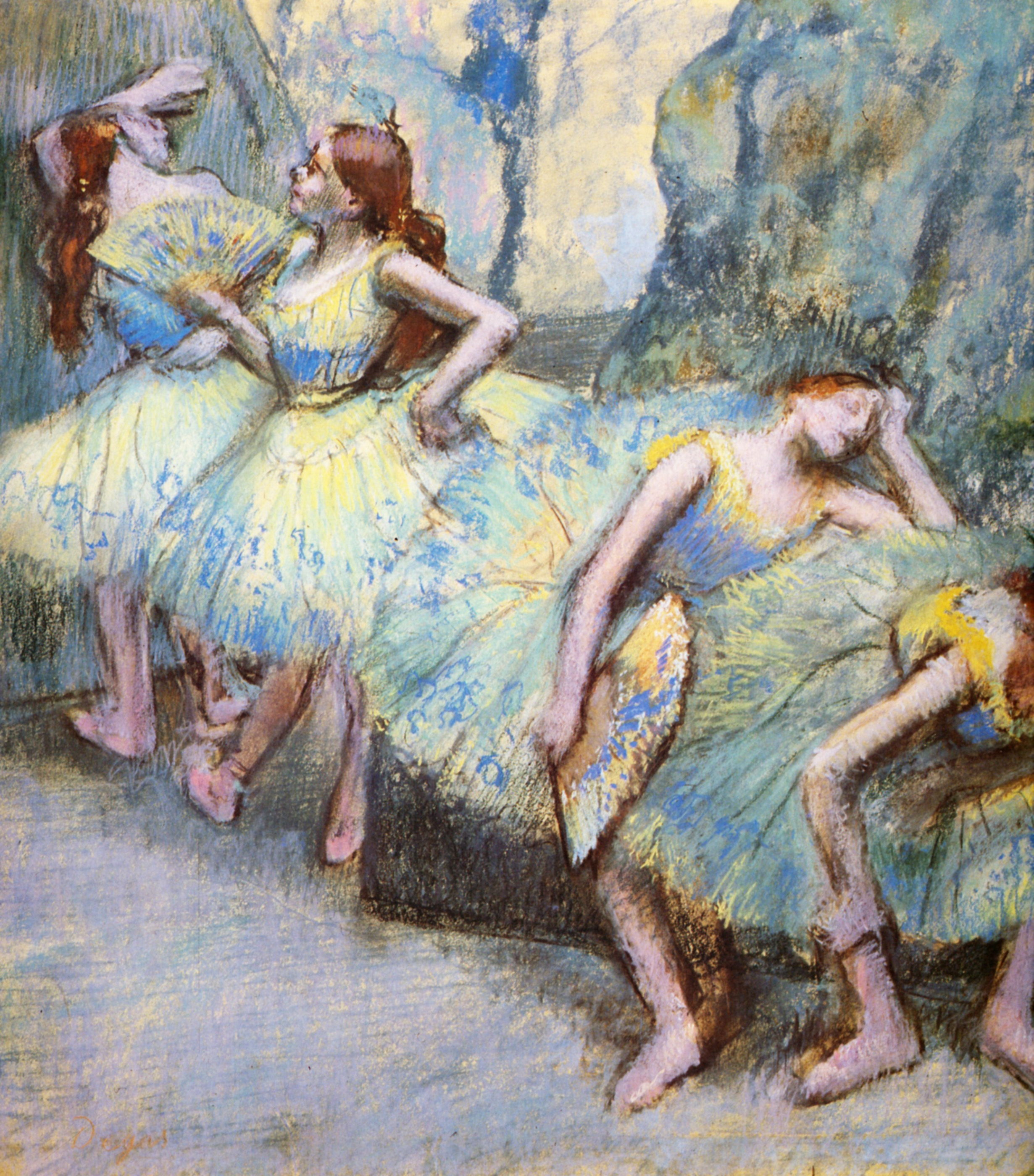art-Degas.com
Edgar Degas 1834-1917
Edgar Degas - Ballet Dancers in the Wings 1900
 Ballet Dancers in the Wings |
From Philadelphia Museum of Art:
Entry to the backstage areas of Paris Opéra was via a single door that was either locked or guarded by an Opéra official who maintained a written record of all who used it. Beyond were administrative offices, workshops for making costumes and props, and facilities for singers and orchestra musicians. For dancers there were classrooms, dressing rooms, and the foyer de la danse. The foyer was a rehearsal room and warm-up space, but it was also notorious as a place for dignitaries and abonnés to mingle with dancers during intermissions.
Representing the city's political, financial, and cultural elite, the abonnés permanently reserved at least half of all the seats at the Opéra. A full subscription, for three nights per week, granted access to backstage areas during performances. Records show that Degas used his abonné privilege to go behind the scenes at the Opéra during nearly two hundred performances between 1885 and 1892.
At the time, the sight of a woman's body was not permissible in polite society; it was already a cliché to say that many of the exclusively male subscribers came to see--and some to proposition--the Opéra's scantily clad dancers. Most members of the corps de ballet came from poor families, and some accepted the financial support of the abonnés in exchange for sexual favors. Others established relationships with "protectors," who helped to advance a dancer's career, while a few married wealthy or titled abonnés.
The busiest area was the wings; principally used by performers, stagehands, and managers (though directors, composers, chaperones, celebrities, journalists, artists, and abonnés often joined them). Degas disregarded many of these characters, however, exploiting scenery flats and cropped fields of view to emphasize the ballerinas' sense of expectation, their weariness, or the lurking presence of others backstage.